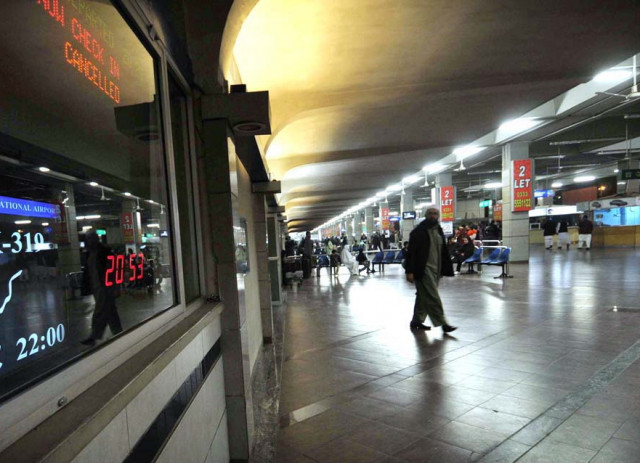Is the airfare unfair?
Software determines price, ambiguity irks passengers.

Shahid Butt, a resident of Model Town, Lahore, wanted to book the routine morning flight to Karachi for him and two other passengers. The trio wanted to travel on August 18.
The average fare, Butt checked online multiple times, should not have been more than Rs7,000 for the one-way trip.
“For some reason, Pakistan International Airlines’ (PIA) morning flight was unavailable for the particular date,” said Butt. “The only option was to book Shaheen Air that was scheduled to depart at 10:45. Each ticket cost Rs16500 – more than double the fare I thought should have been charged. This is beyond my understanding.”
After failing to receive a reasonable explanation from the airline’s staff, an indignant Butt fired off letters to newspaper media. “Where are the regulatory authorities,” he wrote. “Perhaps they have joined hands with the airline and get a share [in profit] on a per-flight basis.”

This sort of complaint is easy to come across and not restricted to Pakistan. Passengers from around the world run into situations where a person sitting next to them on the plane has paid a different fare.
Airlines use what has come to known as the Revenue Management System (RMS) to determine airfares. RMS uses a set of tools, past trends and forecast to fix the price of each seat. Ultimately it boils down to demand and supply, airline officials say. Often, the earlier a seat is booked, the cheaper the fare one gets.
On its part, Pakistan’s Civil Aviation Authority (CAA) says that it no longer interferes in matters of ticket pricing. “Market forces determine it,” said a senior official at the Economic Oversight Department. “Our role is limited to seeing that there is no collusion among airlines to set the fares.”
The old times
Until 1978, the aviation industry was highly regulated with bilateral agreements between the governments determining the number of flights, capacity and timing on a reciprocal basis. “That was when the airlines used to determine fares between them,” the official said.
In subsequent years, as deregulation became the norm, Pakistan also moved towards market dynamics setting the fares.
“Airfares fluctuate on a seasonal basis as well,” the official said. “There will be days when fares will go up on the back of demand and then comes a time when excess capacity leads to reduction.”
But with most of the airlines facing losses, and the largest one in Pakistan often facing a shortage of aircraft, what is the regulator doing to increase the supply of seats?
As Butt puts it, “If there is no check, then this mean airlines could charge us even Rs30,000 for a one-way trip between Lahore and Karachi under the guise of supply and demand?”
Something like that happening is unlikely. Whenever domestic airlines have seen demand rising, they have moved swiftly to add more capacity, the CAA says.
“This often leads to a phase when customer benefits but only for a while as airline business has very tight margin and cut throat competition eliminates weaker players pretty soon.”
A PIA official explained that fares are determined automatically by efficient software.
“There is no question of manipulation,” said the official. “We can’t manually change fares since sales agents around the world would instantly know what is happening.”
Before the national airline employed the RMS, it used to have just two different fares covering the entire year. “It didn’t matter if the aircraft was filled to the brim or half empty at that time,” the official said.
The best demonstration of how the system operates is either before or after Eid holidays. “Fares are up when expatriates are in a hurry to visit family in Pakistan but it slides because flow of returning traffic is staggered over many days.”
Published in The Express Tribune, October 20th, 2014.
Like Business on Facebook, follow @TribuneBiz on Twitter to stay informed and join in the conversation.



















COMMENTS
Comments are moderated and generally will be posted if they are on-topic and not abusive.
For more information, please see our Comments FAQ